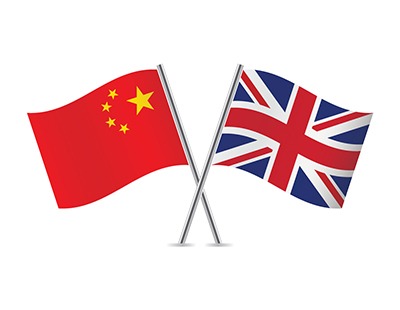Adaptation is key
“Property and private wealth markets are arguably two of the most traditional sectors; neither have the need for drastic innovation or change, unlike other fast-moving sectors such as retail, fintech, and travel,” the introduction to the thought leadership article said.
“Nonetheless, the unprecedented circumstances surrounding the pandemic has forced all industries, and businesses of all sizes, to adapt to a world that suddenly relies almost entirely on digital platforms to continue operating. Sectors including property and private wealth are finding an urgent need for innovation.”
For the thought leadership article, 11K spoke to 15 respected experts in the property, architecture, legal and private wealth sectors of China, Hong Kong, Singapore, the UK and Montenegro, to see how coronavirus has impacted their businesses, as well as asking them to put forward their predictions on the future of property and private wealth markets.
Investment migration programmes on the rise
Real estate-backed investment migration (IM) programmes (including migration to places such as Cyprus, Montenegro, Greece, Portugal and the Caribbean) are predicted to be in greater demand, as Chinese and international investors will seek to lock in long-term returns.
Paddy Blewer, a director at Henley & Partners UK, argued that the pandemic has created significant market volatility, which has potentially impeded the value of HNW wealth portfolios on a global basis.
“Investment migration products can be a solution to this challenge,” Blewer said. “Real estate-secured investment migration can be seen as a ‘hedge within a hedge’. Real estate is a well-recognised long-term investment. However, asset valuation and yields can fluctuate. This volatility is again hedged by the enhanced global mobility provided by investment migration.”
Slavica Milic, senior marketing manager at Orascom Development Holding, Luštica Bay, Montenegro, said there has been an emerging market interest in Lustica Bay from China, bringing in an influx of travellers, property buyers and those searching for new business opportunities to the area.
“With cautious optimism, we hope to witness this demand continue following the Covid-19 pandemic, mainly because of the varied and investment-appealing product and development offerings we offer,” she said.
She also cited the overall popularity of the destination as a reason to believe demand will continue. “The newest planned addition to the property portfolio, which will see the light of the day in the second half of this year, is expected to generate investment migration interest from international, in particular Chinese, buyers.”
The motivations of Chinese property buyers are changing due to the circumstances created by the pandemic, though. As a result, good air quality and access to public health services are set to be the highest priorities of Chinese buyers after Covid-19, alongside current priority considerations such as education.
New considerations
Epidemic prevention space and public health security will now be more important than offices or transport links nearby to HNW buyers, especially those from China.
Graham Rowan, chairman at Opulent Homes, said that physical security has always been an important consideration for HNW families looking for homes abroad, but Covid-19 means that health security will also be a top priority moving forward.
Rowan said that HNW families are likely to judge how each country’s health system coped with the pandemic. In densely populated cities, access to ‘epidemic prevention space’ – space within a home that can easily be converted into a safe place for self-isolation – will become a strong selling point for Hong Kong and Chinese investors in the future.
Addy Wong, chief executive at Centaline Property Agency Ltd (Asia Pacific), said the pandemic has exposed the fact that Hong Kong, one of these densely populated cities, does not have good housing facilities - lacking, specifically, in sufficient space for isolation.
“I believe there will be a demand for an ‘epidemic prevention space’, a space that could be easily transformed into a safe place for self-isolation,” he said. “This space should have built-in air purification and sanitation facilities, medicine and food storage areas, and also be equipped with internet, entertainment and indoor sports facilities, etc.”
Joan Lim, head of investments at DWG Investment Ltd, said that the primary factors of a good investment property may change as more people and companies get used to remote working.
“Already, this was a trend that was growing before the onset of Covid-19. We think that the virus has sped up the trend and that location and proximity to one’s workplace will not necessarily be a primary factor of where people choose to buy. Instead, other factors such as quality-of-life and affordability could become a stronger magnet for buyers.”
Technological innovation will increase
As a result of Covid-19, traditional property selling and buying agencies, property developers, architects and solicitors are all being forced to innovate, use less facetime and optimise technology to deliver all facets of their services.
The recent Tech Nation Report 2020, supported by BNP Paribas and Openreach, showed that the last year saw a significant uptick of activity in the UK tech sector, growing at a speed six times faster than any other sector in the UK in 2019. The tech sector’s huge growth and progress have nudged the property sector into adapting and relying more heavily on tech in all aspects of business.
This applies to independent Chinese property agencies such as Lessel Ltd, which operates in the UK and China. Sales director Belinda Zhu says the firm is moving all marketing campaigns from offline to online platforms as a direct consequence of people spending more time at home during the pandemic.
Andrew Paulson, partner at Lees Associates LLP, believes that remote and virtual viewings of property will become more commonplace, “something that we as architects can contribute to via the interactive BIM models that we produce as standard.”
William Marriott, partner at Charles Russell Speechlys LLP, said that the same trend applies to the surveying and legal markets. “It will be essential to innovate and adapt to the market demands in the next 12 months, perhaps more than ever before,” he said. “As an example, Land Registry [UK] is now coming under increasing pressure to adapt its procedures, as it does not currently accept transfer deeds that have been executed electronically.”
What conclusions can we make?
“While it’s too early to speak with complete certainty, Covid-19 does present many opportunities for the Chinese, UK and global property and private wealth markets,” the research report summarised.
In China, it said that domestic investors will see the current situation as an opportunity to hunt for bargains, with deal volumes expected to gradually pick up during the second and third quarter of 2020, as the effects of the government’s stimulus measures begin to show. As Edmond Yew, a former chairman of planning development at The Hong Kong Institute of Surveyors, says:
“The Chinese government hopes that the economy will develop steadily. To recover the losses of Q1 and Q2 this year, more measures should be taken to stimulate the economy, including promoting the development of the real estate industry [in Hong Kong and China] and opening the door to welcome more foreign investors. So, there will be more opportunities for the real estate industry.”
The report concludes by saying: “Despite the unprecedented level of uncertainty caused by Covid-19, two things are certain: the world has become less global, and we will see that in all sectors, including in traditional property and private wealth sectors, the pandemic will continue to fuel innovation, change and creativity.”
You can read the full thought leadership paper here.








.png)










Join the conversation
Be the first to comment (please use the comment box below)
Please login to comment